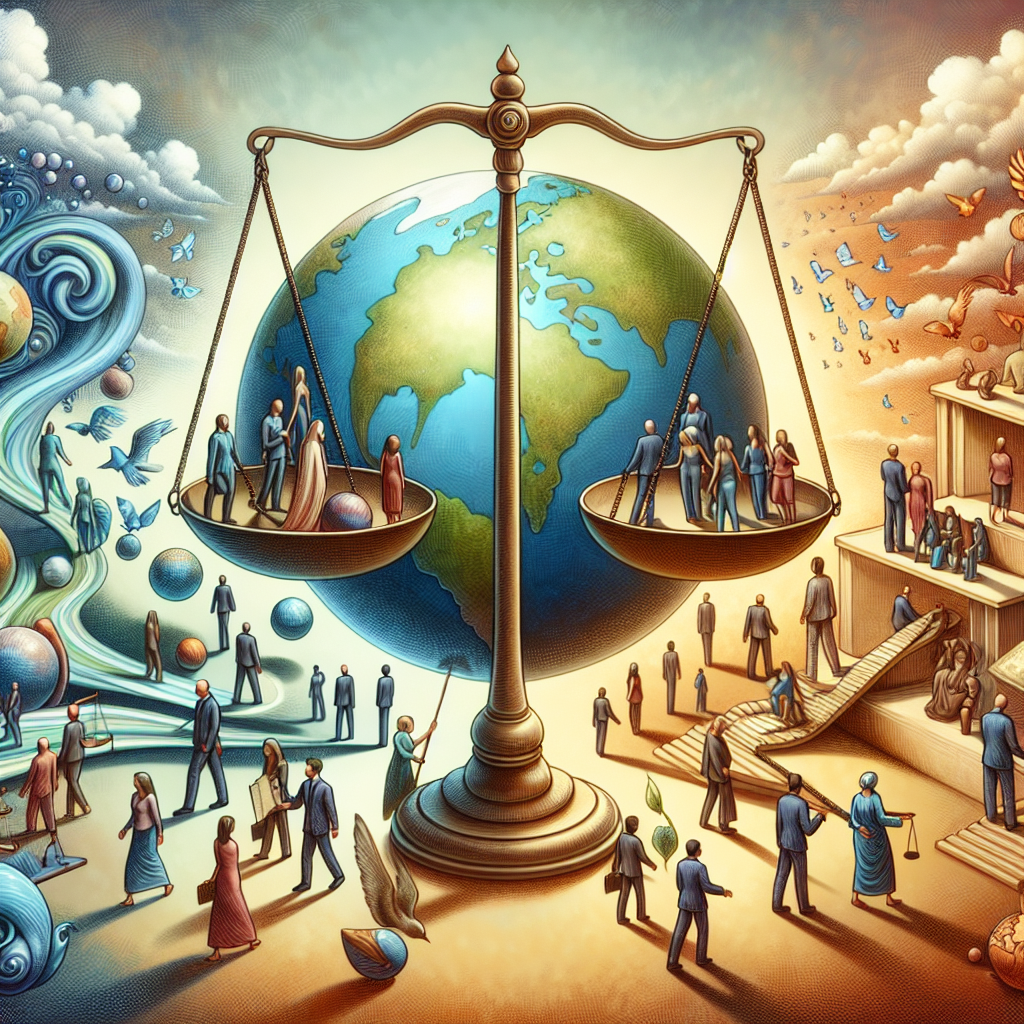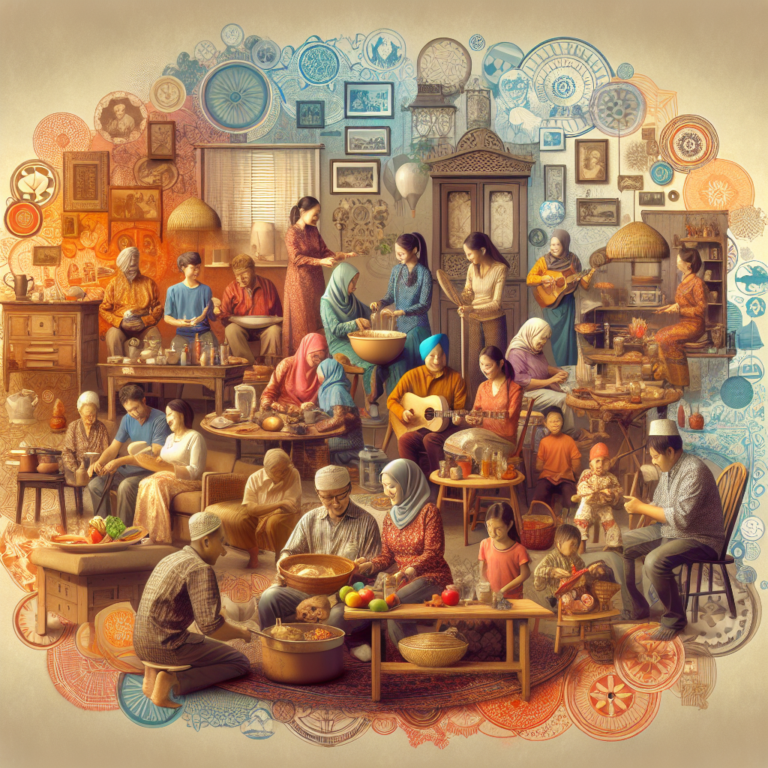Introduction
In a world characterized by complexity and interconnectedness, the notion of karma offers a profound framework for understanding the interplay of actions and consequences. Derived from ancient Indian philosophy, karma suggests that every action has a reaction, and our choices shape not only our destinies but also the collective experiences of society. With modern challenges ranging from environmental crises and social injustices to personal conflicts and technological disruptions, finding creative solutions to balance our actions and their consequences is more essential than ever.
This article examines the concept of karma, the importance of conscious decision-making, and various creative strategies to foster positive outcomes in both personal and collective contexts. Through this exploration, we seek to highlight the significance of ethical decision-making, innovative problem-solving, and resilient community-building in navigating today’s karmic world.
Understanding Karma: A Brief Overview
Karma is not merely a philosophical concept; it is a worldview that has implications for every aspect of life. It underscores personal responsibility, urging individuals and communities to take ownership of their choices. The law of karma operates on the premise that thoughts, words, and deeds ripple outward, influencing both the individual and society at large.
In contemporary usage, karma often carries a moral compass, guiding people toward actions that contribute positively to their lives and the lives of others. However, the challenge lies in recognizing the intricate web of relationships and consequences that our actions create. Herein lies the need for creative solutions that can bridge intention and outcome, making it essential for individuals to think critically about the impact of their choices.
The Importance of Conscious Decision-Making
Conscious decision-making is at the core of balancing actions and consequences. It involves a deliberate process that considers not only the immediate benefits of a choice but also its long-term implications. In a karmic world, conscious decision-making entails:
Awareness: Understanding the context in which decisions are made, including cultural, social, and environmental factors.
Empathy: Recognizing how our actions affect others and fostering a sense of interconnectedness.
Reflection: Taking the time to evaluate past decisions and learning from mistakes.
Creativity: Approaching problems with openness and imagination to find innovative solutions that consider multiple perspectives.
- Responsibility: Accepting the consequences of our choices, both good and bad, and being willing to make amends or adjustments as necessary.
By cultivating these attributes, individuals can better navigate the complexities of life and contribute to a more harmonious existence.
Creative Solutions for Personal Growth
On a personal level, individuals can adopt creative strategies to align their actions with their values, thereby enhancing their karma. Here are several approaches to consider:
1. Mindfulness Practices
Mindfulness involves cultivating awareness of the present moment without judgment. Regular mindfulness practices, such as meditation, yoga, or journaling, help individuals develop a clearer understanding of their thoughts and behaviors. By becoming more aware of their impulses and motivations, individuals can make more informed choices that align with their ethical beliefs.
2. Intentional Goal Setting
Setting intentions rooted in personal values can lead to more meaningful actions. Instead of arbitrary goal setting, individuals can engage in exercises that help clarify what matters most to them. By creating goals that align with their values, people are more likely to engage in actions that yield positive karmic outcomes.
3. Acts of Kindness and Service
Engaging in selfless acts of kindness not only helps others but also creates a ripple effect of positive karma. Whether volunteering at a local charity or simply offering a helping hand to a neighbor, acts of service enhance social bonds and contribute to a more compassionate world.
4. Embracing Failures as Learning Opportunities
In our journey of self-improvement, failures are inevitable. Rather than viewing them as setbacks, individuals can adopt a growth mindset, reframing failures as valuable opportunities to learn and grow. This perspective fosters resilience and encourages people to take risks that can lead to transformative experiences.
5. Creative Expression
Artistic expression through writing, music, visual arts, or performance can serve as an outlet for emotions and a means of processing experiences. Creative endeavors allow individuals to explore their inner worlds and can lead to cathartic revelations, helping to clarify values and intentions.
Creative Solutions for Community Engagement
While personal growth is essential, fostering a sense of community is equally important in a karmic context. By actively engaging with others, individuals can amplify their positive impact. Here are some creative solutions for building resilient communities:
1. Collaborative Projects
Community-based projects that encourage collaboration can unite diverse individuals toward a common goal. Whether it’s a local garden, art mural, or neighborhood clean-up, collective efforts foster a sense of belonging and shared responsibility. These projects not only beautify the community but also reinforce the karmic principle of interconnectedness.
2. Grassroots Activism
Engaging in grassroots activism empowers individuals to advocate for social change. By raising awareness about pressing issues and advocating for policy changes, communities can hold institutions accountable. This active participation allows individuals to channel their energies into creating a more equitable and just society, ultimately influencing regional and national conversations.
3. Community Dialogue and Forums
Creating safe spaces for open dialogue fosters understanding and empathy among community members. Holding forums to discuss shared concerns and aspirations can help bridge gaps between diverse groups. When people feel heard and understood, they are more likely to collaborate on solutions that benefit the entire community.
4. Local Sustainability Initiatives
Promoting sustainability at the local level can have far-reaching consequences. Initiatives such as farmer’s markets, community-supported agriculture (CSA), and waste reduction programs encourage individuals to make environmentally conscious choices. By prioritizing sustainability, communities can mitigate negative environmental consequences, fostering a healthier planet for future generations.
5. Mentorship Programs
Investing in the next generation through mentorship programs can create lasting positive change. By connecting experienced individuals with youth, knowledge and skills can be shared, helping to build confidence and empower young people. This transfer of wisdom promotes a cycle of growth and support within the community.
Creative Solutions for Global Challenges
As we expand our perspective to a global context, it’s evident that many challenges—such as climate change, poverty, and inequality—are rooted in collective systemic issues. Addressing these issues calls for innovative solutions that transcend borders, promote collaboration, and leverage technology effectively.
1. Global Citizenship Education
Education plays a pivotal role in shaping future generations. By integrating global citizenship education into school curricula, students can develop an understanding of their interconnectedness with others. This education fosters awareness of global issues and encourages students to think critically about their role as active participants in the world.
2. Technology as a Force for Good
Technology has the potential to bridge gaps and connect people across the globe. Social media platforms, crowdfunding sites, and online collaboration tools can facilitate collective action and enable individuals to share resources and ideas. By harnessing technology responsibly, individuals can mobilize support for humanitarian efforts, environmental conservation, and social justice initiatives worldwide.
3. Ethical Business Practices
The business sector can play a significant role in shaping a karmic world by adopting ethical practices that prioritize sustainability and corporate social responsibility. Companies that embrace fair trade, reduce their carbon footprint, and invest in community development contribute positively to society. Consumers can also use their purchasing power to support businesses that align with their values, creating a cycle of ethical commerce.
4. Cross-Cultural Collaborations
In a globalized world, fostering collaborations between diverse cultures can lead to innovative solutions to common challenges. By promoting mutual understanding and respect, individuals can break down stereotypes and create synergies that benefit everyone involved. Initiatives such as cross-cultural exchange programs can broaden horizons and inspire creative problem-solving.
5. Policy Advocacy for Systemic Change
To address the root causes of global challenges, advocacy for systemic change is imperative. Individuals can advocate for policies that promote social and environmental justice. This may involve mobilizing communities, engaging with local governments, and supporting initiatives that challenge the status quo. By working to reshape policies at various levels, individuals can create lasting change that aligns with their ethical beliefs.
Embracing the Journey of Balance
As we navigate a karmic world, it becomes clear that finding balance is both an individual and collective endeavor. The journey involves recognizing that our actions have far-reaching consequences—beyond our immediate circle—requiring us to act thoughtfully and creatively.
1. Cultivating Patience
The process of balancing actions and consequences often takes time. Cultivating patience can help individuals embrace the journey and acknowledge that meaningful change may not be immediate. By practicing patience, individuals can remain committed to their values, even amid setbacks and challenges.
2. Commitment to Lifelong Learning
The pursuit of balance requires a willingness to learn continuously. By embracing a mindset of lifelong learning, individuals can remain adaptable and open to new ideas. This adaptability helps cultivate resilience and enhances one’s ability to navigate an ever-changing world.
3. Building Supportive Networks
Surrounding oneself with supportive individuals can provide encouragement and motivation. By creating networks of like-minded individuals, individuals can share ideas, resources, and support. These networks can serve as a foundation for collective action, amplifying positive efforts.
4. Acceptance of Imperfection
Recognizing that perfection is unattainable allows individuals to release the fear of failure. Embracing imperfection fosters authenticity, enabling individuals to pursue their passions genuinely. This acceptance encourages others to do the same, creating an environment where creativity and innovation can flourish.
5. Celebrating Small Wins
Acknowledging and celebrating small wins along the journey is crucial for maintaining motivation. Whether it’s making a sustainable choice, supporting a community initiative, or engaging in a meaningful conversation, recognizing these moments reinforces the positive ripple effect of our actions.
Conclusion
In conclusion, the challenges of our karmic world call for innovative, creative solutions that enable individuals and communities to balance actions and consequences effectively. By embracing conscious decision-making, engaging in personal growth, fostering community resilience, and addressing global challenges collaboratively, we can cultivate a world that reflects our highest ideals.
This journey requires commitment, creativity, and compassion. It invites us to reflect on our choices, engage with our communities, and strive for a more harmonious existence. Ultimately, by acting with intention and purpose, we can amplify the positive ripples of our actions, nurturings a world that embodies the essence of karma—one where actions are not just reactions but are contributing to the collective well-being of all living beings on this shared planet. Thus, we can transform our karmic world into one marked by balance, justice, and holistic flourishing.





